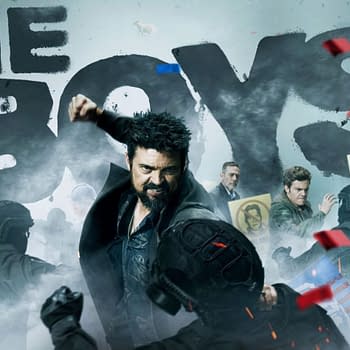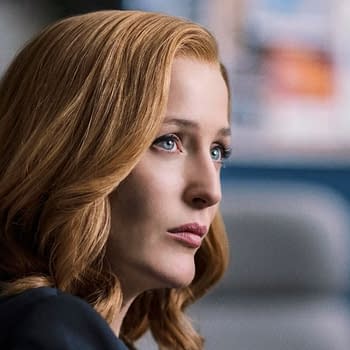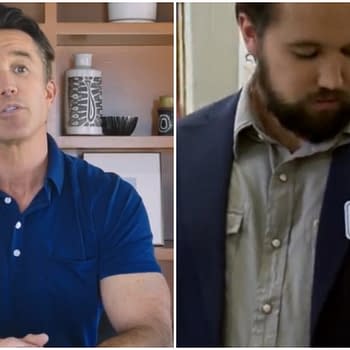Posted in: HBO, Review, streaming, Trailer, TV, YouTube | Tagged: action, america, Atticus, Atticus "Tic" Freeman, Aunjanue Ellis, bleeding cool, books, cable, courtney b vance, drama, George Freeman, HBO, Hippolyta, horror, jj abrams, Jonathan Majors, jordan peele, Jurnee Smollett, Leti, Letitia "Leti" Lewis, Lovecraft Country, Matt Ruff, Misha Green, novels, preview, racism, Ruby Baptiste, streaming, teaser, television, thriller, trailer, tv, Wunmi Mosaku
#1 Lovecraft Country – HBO: Bleeding Cool TV Top 10 of 2020
Welcome back to Bleeding Cool TV's Top 10 of 2020, as our look back at the best and brightest in broadcast, cable, streaming, and online television this year comes to an end with a look at the best of year filled with bests. 2020 was a year in which Television stepped up in the face of a global pandemic while other mediums left their audiences to fend for themselves. But not Television. Television stepped up to make our lockdown times a little more sane- a bit more bearable. From live-streaming table reads to tweet-a-longs with shows' best and brightest offering fans new content to productions going into massive "bubble modes" to knock out as much content as possible. This year, Television proved once again what it's always been. A reflection of what we've been, who we are, and who we have the potential to be in the toughest of times. Developed by series showrunner and executive producer Misha Green and starring Jonathan Majors, Jurnee Smollett, and Courtney B. Vance, no other series this year best exemplified all three aspects as HBO's Lovecraft Country.
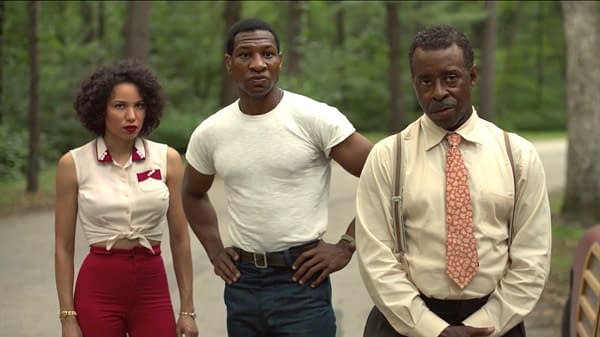
It seems pretty fitting that Green's take on Matt Ruff's 2016 novel would follow last year's winner of the top spot, HBO and Damon Lindelof's Watchmen. Both series took existing works and expanded upon them in ways that made each respective source that much more relevant. Both series offered brutally truthful takes on societal issues that still plague this country, offering voices to those who've been kept silent for too long. And both series sewed their thematic threads within the tapestry of their respective genres, creating art that was both beautiful yet painful- but impossible to turn away from.
But there's one important difference between the two that makes Green's masterpiece the distinctive voice that it is. The very moment that Atticus (Majors), Leti (Smollett), and Uncle George (Vance) begin their journey, viewers are being locked into the kind of history lesson you won't find in school. By peeling back the layers of America's past, Green and her creative team expose viewers to the all-too-real horrors that serve as the foundation of this nation. And no matter how "woke" a viewer may think they are, there's always another real, gut-punching dose of reality waiting to shake up any sort of comfort you might feel.
It's one thing to know the "surface history" of this country's foundation of racism, but when it's put in terms of seeing characters we've come to connect with using The Safe Negro Travel Guide and learning it's based on the sadly real The Negro Motorist Green Book? The series takes that fact, personalizes it, and forces viewers to deal with it. Lovecraft Country isn't an easy watch- nor should it be. Because what it gives us is worth the work. But it is necessary viewing- and repeated viewing (especially for the effects and cinematography)- to truly appreciate how genres can still be used to create the kind of change in minds we need. Even if they think they're watching "just another horror show."
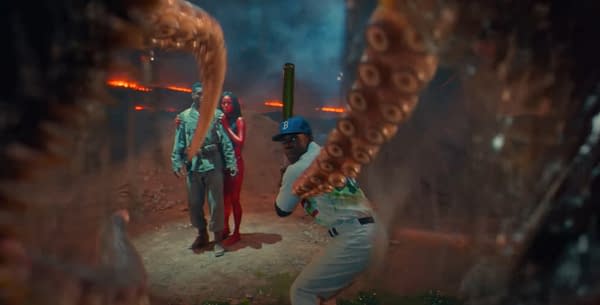
But perhaps it's best we leave the last word to Green, who explained her perspective on that very approach when sharing her first meeting with executive producer Jordan Peele (Get Out, Us):
"My agents said, 'We think you would get along really well.' And I was like, 'Why? I don't like to laugh.' (Laughs) 'No, no, he's a huge horror fan and he's working on a movie right now.' And we vibed right away. Then Jordan said, 'I want you to watch 'Get Out." I saw it and went, 'Phew!' We'd gotten along so well that I didn't want to watch it and be like, 'Oh, man.' But it was amazing. Then when we were working on 'Lovecraft' – he was doing the film 'Us' at the time – we talked a lot about our shared belief regarding horror, which is: You need the metaphor. I'd played with that on 'Underground'; that it was a heist movie but set in slavery times. That the people pursuing the heist happened to be enslaved people trying to steal back their most precious possession: their lives. I used the heist genre to appeal to people who thought, 'Ugh, I don't want to watch a slavery show.' But you did want to watch this one because we used genre as a doorway into something deeper."




